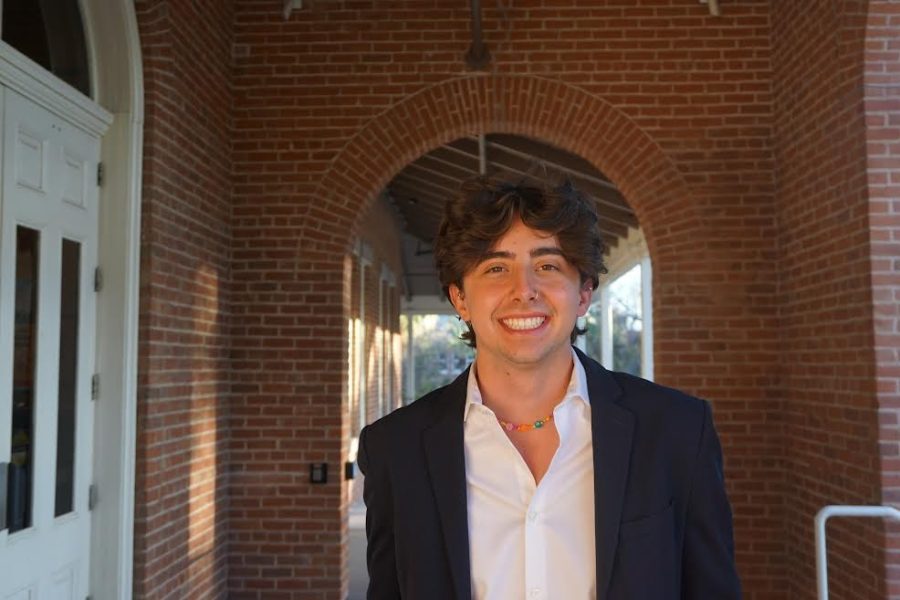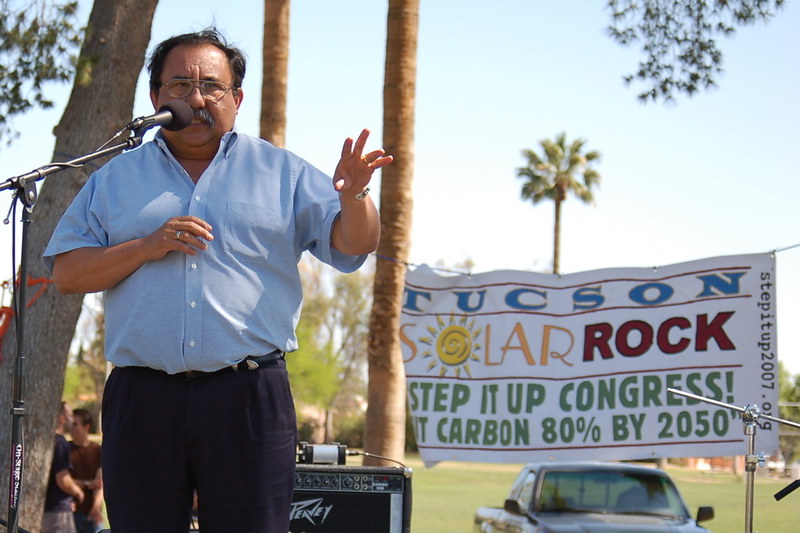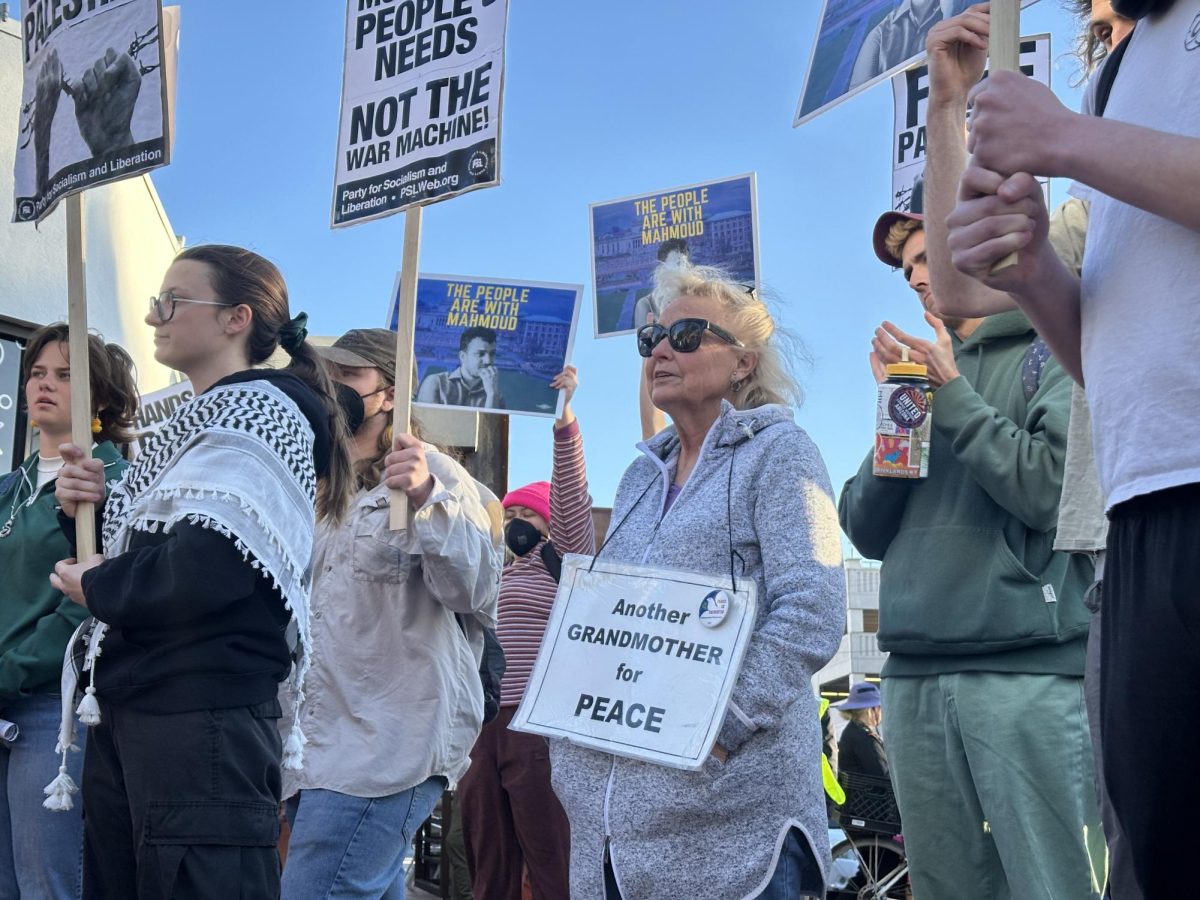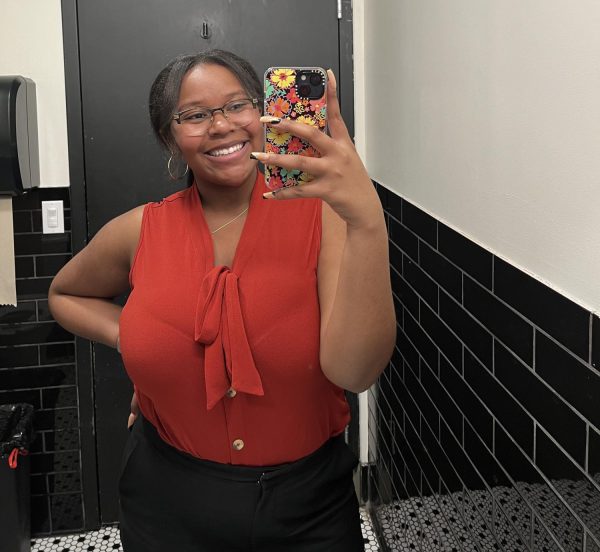Senior Nico Nieri-Lang, studying political science and sociology, was appointed to be executive vice president of the Associated Students of the University of Arizona, otherwise known as ASUA, for the upcoming 2022-23 academic year.
In ASUA, there are two different vice president positions. The positions of executive vice president and administrative vice president are the two offices directly below the student body president.
Each office handles specific things as stated in the ASUA bylaws and EVP Nieri-Lang handles most matters involving clubs on campus.
Daily Wildcat: What does the EVP position do in relation to clubs on campus?
Nieri-Lang: As EVP, I oversee the Club Resource Center, which is supposed to be a resource for clubs to come to and understand how they function in relation to other things on campus and with administration. This year, what we’re trying to do is expand the Club Resource Center back to what it previously has been.
We have these club advocates, it’s two positions, and they’re there to help clubs in any way possible and to show clubs resources that ASUA already has to help with how to become a club, how to find a sponsor for their club and how to get them connected with other clubs and club leaders on campus.
DW: Will there be any new or returning clubs coming to campus for the upcoming academic year?
Nieri-Lang: Yes actually! Last year, there were over 500 clubs on campus and this year we’re expecting the same amount or even more. I personally think it’s awesome that we have that many clubs on campus. But as summer ends and the school year starts, my job and my club advocates’ job will be to approve all of the clubs who need to get reapproved for club status, or if someone is thinking of starting a club we would oversee that.
Bottom line though we have about 500 clubs, but anyone is able to create one at any point in the year and we encourage students to do so!
DW: What will the club fair look like this year? What will be similar or different compared to last year?
Nieri-Lang: We are in the process of starting to plan for the club fair now. The goal is to incorporate as many clubs as possible. For example, PATH, which is a part of the Honors College, reached out to us wondering about how to get involved and even though they aren’t formally what we consider a club we just want to give everyone a chance to broadcast themselves to a larger audience of the student body.
DW: What plans does ASUA have to get freshmen students involved on campus?
Nieri-Lang: This is actually really important to me because for me personally and just in general, clubs really help a lot of people find a community on campus. I think it’s really hard in college, especially freshman year, to find people to just talk and relate to. So part of my goal is to get the benefits of clubs out to freshmen earlier and one way that we can do that is through [Housing & Residential Life].
I think a lot of freshmen live on campus and having Res Life advertise clubs has been really effective in the past so we’re hoping to ramp that up a bit. Also with us now getting out of COVID-19, a lot of the events that were once held for freshmen can be brought back to campus because they have been missing these last two years. We’re working with Wildcat Events Board to get back-to-school bashes and concerts happening again, hopefully in early August, to really get freshmen immersed in campus to see what Arizona has to offer.
DW: Does ASUA have any plans to promote cultural/ethnic clubs to POC freshmen coming to campus in the fall?
Nieri-Lang: We’ve been reaching out to a lot of cultural centers on campus and this is something that [ASUA President Patrick Robles, ASUA Administrative Vice President Kaleb Nichols] and I have been working on a lot.
We’ve been having meetings with cultural centers over the past few months asking them what their needs are and how they can reach out to freshmen so people know that they exist and they’re there. Because honestly, the cultural centers don’t have the largest presence on campus, partially because they don’t get a lot of institutional funding. So we’ve been working with them to get involved with things like the club fair and any events we’re having to try and form this relationship.
DW: Are there any ideas to increase participation in Homecoming Olympics with clubs from across campus?
Nieri-Lang: Yes, something really cool that we’ve been working on this year and actually met last week to discuss and plan out is All Leadership Council. It used to be called All Honorary Council and it’s a joint combination of Bobcats Senior Honorary and ASUA. It was formed maybe two or three years ago, but this year, Bobcats’ project and our project is to turn us from All Honorary Council to All Leadership Council.
Their goal this year is to incorporate more people into [Homecoming Olympics] including things that are not honoraries. Bobcats run homecoming, so by incorporating All Leadership Council it is going to incorporate club leaders on campus who haven’t had a place to meet together before.
DW: Will there be a Spring Fling this year? And how should clubs prepare since there has not been one since 2019?
Nieri-Lang: I am excited to say that there will be a Spring Fling this year. We’re working really hard to get people hired and involved in the process. The All Leadership Council meeting will be a big part of getting clubs prepared for things like Spring Fling.
Most clubs get their funding from participation, and participating in Spring Fling is where a lot of clubs historically get a lot of their funding from. I want to make sure that our club advocates are able to help clubs with things like sign-ups and overall information for Spring Fling.
DW: How does ASUA plan on engaging with the clubs on campus this year? What will communication look like?
Nieri-Lang: Most communication will be done through our club advocates but I personally will also have a lot of interaction with clubs. We also have an Appropriations Board that has around $250,000 to give out to clubs, and the thing is a lot of clubs don’t know about this.
We want to make sure they’re engaging with ASUA because we’re their biggest resource when it comes to scheduling on the mall, scheduling rooms and most importantly funding. But the main three things that clubs can use as a resource are our club advocates, the Appropriations Board and myself.
Follow Kiara Adams on Twitter









